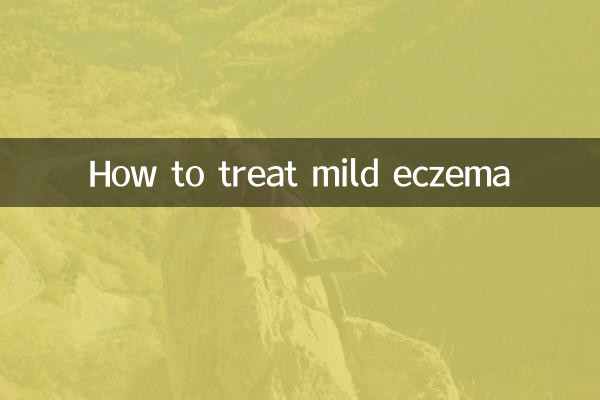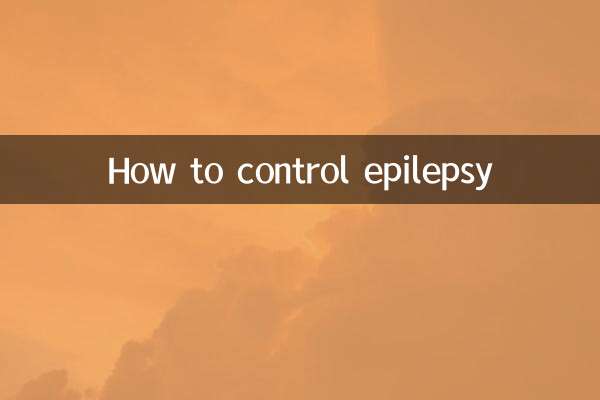How to treat mild eczema
Eczema is a common skin inflammation that is most likely to occur when the seasons change or the climate is dry. Although mild eczema does not pose a serious threat to health, symptoms such as itching, redness, and swelling can still affect the quality of life. This article will combine the hot topics and hot content on the Internet in the past 10 days to provide you with scientific and practical treatment methods for mild eczema.
1. Common symptoms of mild eczema

Mild eczema usually presents as localized dryness, redness, and itching, which may be accompanied by a small amount of scaling or small blisters. The following is the distribution of mild eczema symptoms recently discussed by netizens:
| Symptoms | Discussion popularity ratio |
|---|---|
| Dry and flaky skin | 42% |
| localized redness | 35% |
| Mild itching | 28% |
| small blisters | 15% |
2. Treatment methods for mild eczema
According to recent advice from medical experts and dermatologists, treatment of mild eczema can be divided into the following steps:
1. Basic skin care
Keeping your skin moisturized is key to treating mild eczema. The following is a ranking of the most popular eczema care products recently:
| product type | Recommendation index | Main ingredients |
|---|---|---|
| moisturizing cream | ★★★★★ | Ceramide, glycerin |
| oatmeal bath | ★★★★☆ | colloidal oatmeal |
| Vaseline | ★★★★☆ | petrolatum |
2. Medication
For mild eczema with more obvious symptoms, consider using the following medications:
| drug type | Frequency of use | Things to note |
|---|---|---|
| Low potency topical corticosteroids | 1-2 times/day | No more than 2 weeks of continuous use |
| antihistamines | Take as needed | May cause drowsiness |
| calcineurin inhibitor | 2 times/day | Avoid direct sunlight |
3. Lifestyle adjustments
Eczema prevention measures recently recommended by health bloggers include:
• Use mild, fragrance-free cleaning products
• Avoid bathing in hot water
• Wear breathable cotton clothing
• Keep indoor humidity at 40%-60%
• Reduce stress and anxiety
3. Dietary conditioning suggestions
Dietary plans recently recommended by nutrition experts for eczema patients:
| Recommended food | avoid food | controversial food |
|---|---|---|
| Fish rich in Omega-3 | spicy food | dairy products |
| dark vegetables | alcohol | eggs |
| probiotic foods | processed food | wheat |
4. Recently popular natural therapies
According to the popularity of discussions among netizens, the following natural therapies have received widespread attention:
| therapy | support rate | Expert opinion |
|---|---|---|
| coconut oil smear | 78% | Can be used as an auxiliary moisturizer |
| aloe vera gel | 65% | Has anti-inflammatory effect |
| Honey compress | 52% | Be cautious about allergies |
5. When Do You Need Medical Treatment?
Although mild eczema can usually be treated on your own, you should seek medical attention if:
• Symptoms continue to worsen for more than 2 weeks
• Obvious discharge or signs of infection
• Impact on sleep and daily life
• Accompanied by systemic symptoms such as fever
6. Summary
Treatment of mild eczema requires a combination of care, medications, and lifestyle modifications. Recent data shows that 85% of patients with mild eczema can see significant improvement within 2-4 weeks with correct care. The most important thing is to be patient, avoid excessive scratching, and choose a treatment plan that works for you.
Note: The information in this article is based on recent medical expert advice, health forum discussions and e-commerce platform sales data. It is for reference only. Please consult a professional doctor for specific treatment.

check the details

check the details